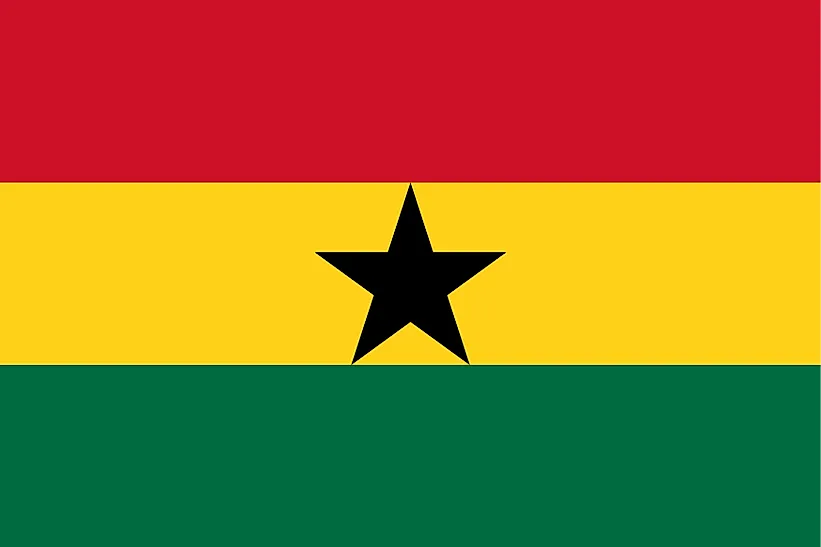
Ghana
| Continent | Africa |
| Capital | Accra |
| Population | 26,908,262 |
| GDP | $121.00 Billion |
| GDP per Capita | $4,400 |
| Dialing Code | +233 |
| ISO Code (2-letter) | GH |
| ISO Code (3-letter) | GHA |
Ghana Landscapes






About Ghana
Welcome to Ghana, a nation that proudly stands as the first sub-Saharan African country to achieve independence from colonial rule. With approximately 31 million people occupying 238,535 square kilometers, Ghana combines rich cultural heritage with modern aspirations, earning its reputation as one of Africa’s most stable democracies.
Geographic Features and Natural Beauty
Ghana’s geography stretches from the Gulf of Guinea coastline to the Sahel-influenced north, encompassing diverse landscapes including tropical rainforests, savannas, and the massive Lake Volta, the world’s largest artificial lake by surface area.
The country features distinct ecological zones, from coastal plains and mangroves through the Ashanti uplands to the northern savanna. The Volta River system, including Lake Volta, provides crucial hydroelectric power and supports agriculture and transportation.
Protected areas like Kakum National Park, with its famous canopy walkway, and Mole National Park, home to diverse wildlife including elephants and antelopes, showcase Ghana’s commitment to conservation. The country’s varied climate supports rich biodiversity and agricultural production.
Cultural Heritage and Traditions
Ghanaian culture reflects the heritage of numerous ethnic groups, with the Akan, Ewe, Ga-Adangbe, and Mole-Dagbani being among the largest. Traditional arts include kente cloth weaving, Adinkra symbols, and gold craftsmanship, particularly among the Ashanti.
Music and dance play central roles in cultural life, with each region maintaining distinctive traditions. The talking drum tradition and highlife music showcase Ghana’s rich musical heritage, while contemporary genres like hiplife blend traditional and modern styles.
Ghanaian cuisine features dishes like jollof rice, fufu with various soups, and kenkey, reflecting the country’s agricultural abundance and culinary creativity. Traditional festivals like Homowo and Akwasidae celebrate cultural heritage and community bonds.
Historical Journey
Ghana’s history spans ancient kingdoms, notably the Ghana Empire and later the Ashanti Empire, through European contact and the slave trade to independence in 1957 under Kwame Nkrumah’s leadership.
The country’s role in pan-African movements and its transition to stable democracy have made it a model for African development. Historic sites like the Cape Coast and Elmina castles serve as powerful reminders of the trans-Atlantic slave trade.
Modern Economic Landscape
Today’s Ghanaian economy combines traditional strengths in gold and cocoa production with emerging sectors like telecommunications and digital services. The discovery of offshore oil has added another dimension to the economy.
Recent initiatives focus on industrialization through the “One District, One Factory” program and digital transformation. Ghana’s position as the world’s second-largest cocoa producer continues to influence its economic development.
International Relations and Global Position
Ghana maintains active participation in regional and international organizations, playing a key role in ECOWAS and the African Union. The country’s stability and democratic credentials make it an important partner in West African affairs.
Did You Know?
• Ghana was the first sub-Saharan African country to gain independence from colonial rule?
• Lake Volta is the world’s largest artificial lake by surface area?
• Ghana is the world’s second-largest producer of cocoa?
• The country’s name comes from the ancient Ghana Empire, though the empire was actually located in present-day Mali and Mauritania?
Conclusion
Ghana represents a unique blend of traditional wisdom and modern progress in West Africa. From its diverse landscapes to its rich cultural heritage, from its historical significance to its contemporary achievements, Ghana continues to evolve while maintaining its distinctive identity. As it addresses challenges including sustainable development and economic diversification, Ghana remains committed to its role as a regional leader and model of democratic governance in Africa.